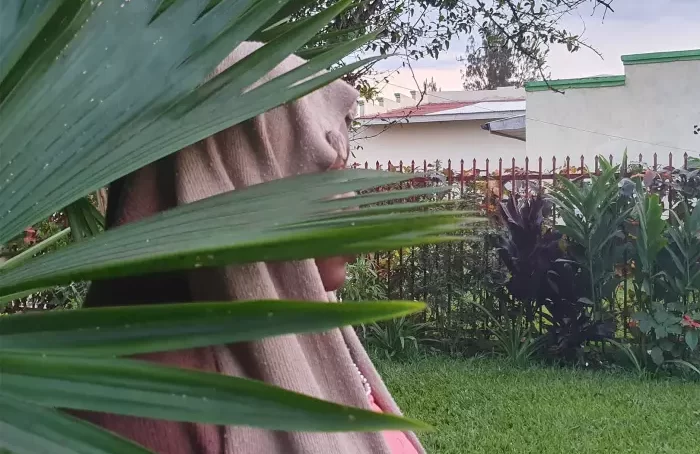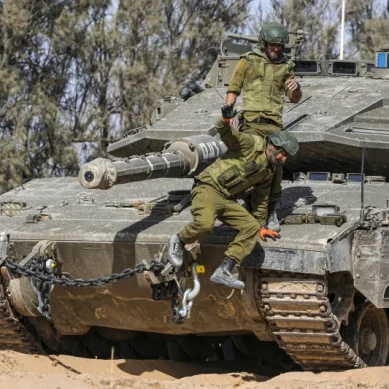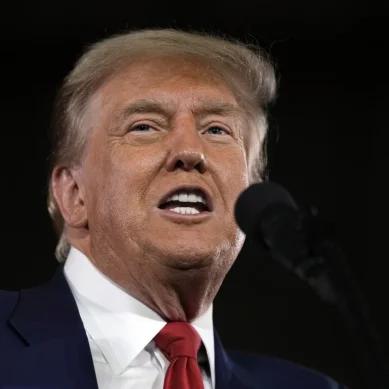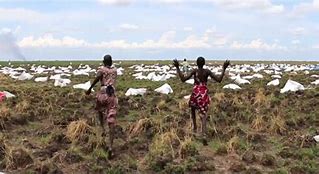
Ketsia* said she was working as a part-time cleaner for the World Health Organization during the 2018 Ebola outbreak in the Democratic Republic of the Congo, when a doctor invited her to his house and offered her a promotion in exchange for sex. He tried to rape her, but she managed to escape. Weeks later, her contract was terminated.
Had Ketsia been a UN staffer, she would have had access to the UN’s own internal justice mechanisms, where workers have been awarded judgments equalling two years’ worth of salaries – sometimes as much as $200,000.
Similarly, had she taken such a case to US courts, settlements for workplace sexual abuse and harassment have reached tens of millions of dollars. Many cases have also resulted in criminal convictions.
In the end, she and more than 100 others who were lured into sex-for-work schemes in DR Congo by WHO personnel and other aid workers received one-off payments of $250, toiletry bundles, short training courses and counselling sessions – the costs drawn from a $2 million survivor assistance fund provided by WHO after one of the largest sex abuse scandals in the UN’s history.
Very few victims of UN sexual abuse and exploitation ever see justice – whether that means compensation, seeing perpetrators punished or winning paternity claims, according to rights groups and lawyers who have represented women in such cases.
“Until now, justice has not been done. Why? Because it’s about Black women living in a conflict zone in the DRC. You can easily forget about them.”
Prosecuting rape and sexual abuse is notoriously difficult, but it becomes even harder the longer investigations take. Some of the allegations in the Ebola sex abuse scandal date back to 2018, although many were not reported until The New Humanitarian and Thomson Reuters Foundation first broke the story in 2020.
Victims and local prosecutors also face a maze of challenges when it comes to cases involving UN personnel. Compensation and reparations are even thornier subjects – there is often little agreement on who should pay, and in the case of the Ebola sex abuse scandal, the UN has ruled out reparations.
“This means that the life of a Congolese woman … is not worth more than $250,” Chantal Yelu Mulop, special advisor on youth, gender, and violence against women in the Congolese president’s office, told The New Humanitarian on 24 March.
“Until now, justice has not been done,” she said. “Why? Because it’s about Black women living in a conflict zone in the DRC. You can easily forget about them.”
To date, no aid workers have faced charges despite a WHO-appointed independent commission reporting nine rape allegations, including that of a 13-year-old girl. In DR Congo, rape can carry a life sentence, and perpetrators have been ordered to pay victims compensation.
Congolese President Felix Tshisekedi has yet to receive any update on investigations or dossiers on the allegations, Yelu Mulop said, adding that she intended to press the issue with UN authorities, as well as government ministries.
WHO did not respond to requests for comment at the time of publication.
As temporary and part-time cooks, cleaners and outreach workers during the 2018-2020 Ebola outbreak, women who were lured into sex-for-work schemes earned between $50 and $100 a month. Some said they were only hired if they agreed to sex and were routinely harassed by supervisors once they were given jobs. Others said they were fired if they refused.
A year after the sex abuse scandal broke in 2020, WHO Director-General Tedros Adhanom Ghebreyesus apologised to victims and announced a raft of internal reforms, potential disciplinary action against personnel and the dedicated survivors’ fund.
Since then, Gaya Gamhewage – appointed in 2021 to lead WHO’s efforts to prevent sexual abuse and exploitation – said the UN agency has made significant progress, clearing a backlog of investigations, adding specialised staff, and rolling out a new policy aimed at addressing “gaps, loopholes and lack of clarity”.
Although WHO has said the UN’s Office of Internal Oversight Services (OIOS) has not yet shared its investigative findings from the DR Congo sex abuse scandal, 14 alleged perpetrators associated with WHO had their names entered into the UN’s ClearCheck database, a system meant to prevent suspected abusers from getting other UN jobs.
Another seven “separated” from the WHO. One of those died, and the details of six others were not entered into ClearCheck because they were accused of harassment, which doesn’t necessarily involve physical contact.
It was unclear whether WHO’s own investigators were conducting separate investigations in addition to those being conducted by OIOS or why WHO investigators haven’t referred cases to national authorities.
Christian Saunders, who became the UN’s newest special coordinator on improving the response to sexual exploitation and abuse in July 2022, has said numerous achievements have been made since 2016 – the year his role was created – but challenges remain.
“We need to do everything that we can to hold perpetrators to account in a timely manner,” he told UNToday, the UN’s magazine, last month. “Often, investigations take over a year, then the HR process can take as long as another year, so it’s potentially two years after the event was reported. This is too long.”
- The New Humanitarian report / By Paisley Dodds and freelance journalist Jonas Gerding











